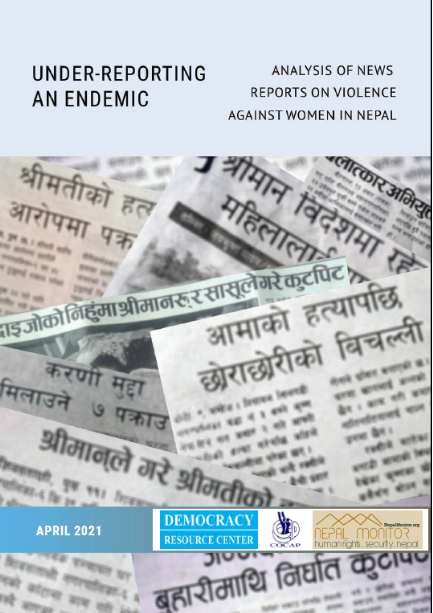Ujjwala Maharjan was working as a features writer for The Week, a weekend supplement of Republica newspaper, when she was assigned to interview Keshav Sthapit, the former Kathmandu mayor who had built a strong reputation for getting things done, barging into alleys and streets with bulldozers.
After returning from the interview near the Gongabu Bus Park, Maharjan said she received a phone call from Sthapit—he invited her for lunch.
“I felt really uncomfortable. I had just met him once,” Maharjan recalled in an interview with the Post. “He was talking in the manner adults do when they are trying to lure kids into doing something.”
Maharjan, who was 22 at the time, said she didn’t know how to react. She told him “OK” and then hung up.
But Sthapit called again—and again.
“He called me at night, and it didn’t just happen once,” Maharjan said. “For at least four or five nights, he kept calling. I just didn’t want to deal with him. I just ignored him.”
Earlier this week, nine years after the incident, Maharjan took to Facebook to describe what happened, inspired by Nepali women who were sharing online their stories of sexual harassment, in what is turning into Nepal’s #MeToo movement.
But Maharjan isn’t the only woman to accuse Sthapit of improper behaviour and harassment. In a post on Facebook on Saturday, Rashmila Prajapati, a former employee at Kathmandu Metropolitan City office, wrote that Sthapit fired her after she rejected his repeated advances masked as an offer for a promotion. In the years since the incidents described by the two women, Sthapit ran in the legislative elections from Province 3, won, and last year was appointed the Physical Infrastructure Minister for the province.
In an interview with the Post, Sthapit strongly rejected the allegations.
“This is a rape of men’s rights,” Sthapit said, denying he’d ever met Maharjan and countering the incidents described by Prajapati.
But in multiple interviews with the Post, Prajapati described in detail how, two years after his election to the mayoral office in 1999, Sthapit started inviting her to discuss a potential promotion. She said she attempted to meet with Sthapit during office hours, but he began calling her
regularly on Fridays, asking to see her on Saturdays since his weekdays were full.
Prajapati also said Sthapit would try to sit very close to her on the sofa and touched her inappropriately during a meeting between just the two of them at his office in Teku.
“Once he put his hands on my shoulder, and I removed it immediately and left the room,” she said. After that, she began taking her office assistant to all her meetings with him.
Sthapit would also drop by her office unannounced, Prajapati said. She excused herself by citing her second job at a radio station on Saturdays, but one day, Sthapit left a message, saying he had sent a car to pick her up because he urgently needed to discuss something with her.
Prajapati said this was the first time she felt the most infuriated and also anxious.
“I didn’t know what to do so I stayed at the [radio station] office for two hours until the mayor’s car left,” she said. Prajapati was only 26 then and had not told anyone in her family about Sthapit’s advances. She feared they would ask her to leave the job, which she didn’t want to then.
When she confronted Sthapit about his behaviour the next day, he brushed her concerns aside, and told her he only wanted to get to know her better and spend quality time, Prajapati said. After that conversation, Sthapit’s calls and advances stopped. In 2001, his tenure ended, and she thought she would never have to worry about what had happened in the past.
Sthapit denied that any of this ever took place, and instead pointed to vague political motives behind Prajapati’s accusations. He said Prajapati had only brought up her accusations to damage him politically, once when he was in the running for mayor alongside Bidya Sundar Shakya in 2017, and again, when he was up for a House of Representatives seat from Province 3.
Prajapati’s account of harassment at Sthapit’s hands was corroborated by her husband, Basanta Man Shrestha, who said that she had mentioned the incidents to him after she was terminated by a Metropolitan official on October 19, 2003, with no official reason stated on the letter of dismissal.
“She told me how Sthapit would ask her to accompany him to Nagarkot or Dhulikhel on Saturdays,” said Shrestha. “He would call her in the evenings. He would call her for meetings, but it would be just the two of them. He would try to touch her hands and try to touch her inappropriately.”
The couple did not file a complaint at that time since then King Gyanendra Shah had seized power and appointed Surya Bahadur Thapa as prime minister, who in turn had appointed Sthapit. The environment was not conducive, said Shrestha.
Sthapit was adamant that he had done nothing wrong and “an attempt” had been made to set him up. He also threatened to go to the police, file a defamation case against the accusers, and seek compensation. When asked about Maharjan’s allegations against him, he refused to acknowledge he’d ever heard of her. “Who is she? Does she even exist? Maybe she’s fake,” he said.
Sthapit is extensively quoted in the Republica story from 2012, which was authored by Maharjan.
In the same interview with the Post, Sthapit said he doesn’t recall if he’d given Maharjan an interview because he meets “10-20 people a day.”
Maharjan’s allegations against Sthapit were confirmed by one of her colleagues, a former journalist who is no longer at Republica. Speaking to the Post on condition of anonymity, the former journalist said Maharjan had discussed the incident with her.
“She had told me how Sthapit had asked her out for lunch,” the former journalist said. "I remember her feeling uncomfortable about it.”
Maharjan said she decided to share her story after a wave of #MeToo stories hit the Indian media and spilt across the border to Nepal. Maharjan specifically cited two Post op-eds by Subina Shrestha and Rubeena Mahato as catalysts for her decision. In turn, Prajapati’s husband relayed how it was Maharjan’s Facebook post naming Sthapit that led his wife to tell her story again.
“At first, I naively thought, maybe it was just me,” Maharjan said. “But, if he had done this to someone else, he should not be allowed to do it again—to anyone else.”
Have you experienced sexual harassment at work or have a confidential tip you’d like to share? You can securely get in touch with The Kathmandu Post editors using our encrypted email account: kathmandupost@protonmail.com.


_001.png)




